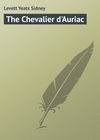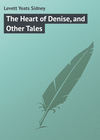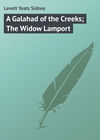Buch lesen: «The Honour of Savelli: A Romance»
PREFACE
Is writing this book the Author has made no effort to point a moral; all that has been done is an attempt to catch the "spirit of the true Romance," and to amuse. The book was partly written in the intervals of work in India, and was completed during the leisure allowed by furlough on medical certificate. In dealing with this period of Italian history, in which the story is set, the Author would say he has taken Dumas for his model, but hopes that he has worked out his scheme on original lines; and he has used, as far as possible, the language in which an Italian living in the beginning of the sixteenth century would express himself. At the time the book was written the Author had not read Mr. Stanley Weyman's brilliant novel, "A Gentleman of France." Had he done so the style of the present book would doubtless have been much improved from the lessons taught by a master-hand. The Author, in bringing this to the notice of the reader, would humbly add that he is making no challenge to break a lance with so redoubted a knight as the creator of Gaston de Marsac.
PRELUDE
I
He rydes untoe ye Dragon's Gate,
And blowes a ryngynge calle:
A gallant Knyghte in armoure bryghte,
'Twere sadde toe see him falle.
Deare Sayntes of Mercy steele hys harte,
And nerve hys arme withalle!
II
Noe glove bears he uponne hys creste,
And lettynge droppe hys visor's barres,
I sawe hys starke soule lookynge forthe,
Toe meete ye whysperes of ye starres.
True Knyghte of God, whose arme is stronge,
Whose harte is pure, whose lance is longe.
III
Lette wyn, lette lose, belyke 'tis true,
Ye issue of ye daye will bee,
Notte toe ye dreamers; butte toe those
Who stayke their alle on victorie.
Notte to ye skiffes uponne ye streames,
Butte ye stronge shippes uponne ye sea.
Vanity Fair, 12th October, 1893.
CHAPTER I.
A BOLT FROM THE BLUE
"I do not drink with a thief!"
D'Entrangues spoke in clear, distinct tones, that rose above the hum of voices, and every one caught the words. In an instant the room was still. The laughter on all faces died away, leaving them grave; and twenty pairs of curious eyes, and twenty curious faces were turned towards us. It was so sudden, so unexpected, this jarring discord in our harmony, that it fell as if a bolt from a mangonel, or a shot from one of Messer Novarro's new guns, had dropped in amongst us. Even that, I take it, would have caused less surprise, although for the present there was a truce in the land. Prospero Colonna turned half round in his seat and looked at me. Our host and commander, old Ives d'Alegres, who was pouring himself out a glass of white vernaccia, held the decanter in mid-air, an expression of blank amazement in his blue eyes. Even the Englishman, Hawkwood, who sat next to me, was startled out of his habitual calm. Every eye was on us, on me where I sat dazed, and on D'Entrangues, who was leaning back slightly, a forced smile on his face, the fingers of one hand playing with the empty glass before him, whilst with the other he slowly twisted his long red moustache. I was completely taken aback. Only that afternoon I parted from D'Entrangues, apparently on the best of terms. We had played together, and he had won my crowns. It is true he was not paid in full at the time; but he knew the word of a Savelli. On leaving, Madame D'Entrangues asked me to join her hawking party for the morrow, and he urged the invitation. I accepted, and backed my new peregrine against D'Entrangues' old hawk Bibbo for ten crowns, the best of three flights, and the wager was taken. Never indeed had I known him so cordial. I did not like the man, but for his wife's sake was friendly to him. Of a truth, there were few of the youngsters in Tremouille's camp who were not in love with her, and some of us older fellows too, though we hid our feelings better. I was grateful to Madame. She had been kind to me after the affair of San Miniato, when a Florentine pike somehow found its way through my breastplate. Indeed, I may say I owed my recovery to her nursing. In return, I had been of some service to her in the retreat up the valley of the Taro, after Fornovo-she called it saving her life. In this manner a friendship sprang up between us, which was increased by the opportunities we had of meeting whilst the army lay inactive before Arezzo. Long years of camp life made me fully appreciate the society of a woman, remarkable alike for her beauty and her talent; and she, on the other hand, felt for me, I was sure, only that friendship which it is possible for a good woman to hold for a man who is not her husband.
I do not for one moment mean to imply that Doris D'Entrangues was perfection. I knew her to be wayward and rash, sometimes foolish if you will; but withal a pure woman. I soon found she was unhappy, and in time she got into a way of confiding her troubles to me, and they were not a few, for D'Entrangues was-what all men knew him to be. Finding that I could be of help to Madame, I avoided all difference with the husband, and for her sake was, as I have said, friendly to him. Perhaps my course of action was not prudent; but who is there amongst us who is always guided by the head? At any rate, I expiated my fault, and paid the price of my folly to the end of the measure.
As I sat in the now silent supper-room with the man's words buzzing in my ears, a curious recollection of a scene that occurred about a month ago came back to me. Madame and I had over-ridden ourselves hawking, and I had dismounted at her request and gathered for her a posy of yellow coronilla and scarlet amaryllis. This, in her quick impulsive way, she held to her husband's face when we met him, a half-league or so on our way back, saying, "See what lovely flowers Di Savelli has given me!" He snatched them from her hand, and flung them under his horse with an oath, adding something which I did not catch. Madame flushed crimson, and the incident ended there, for I did not care to press the matter.
It all came back to me now, in the oddest manner, as I sat staring at D'Entrangues. He had come in late to the supper, and, after greeting D'Alegres, slipped into the seat opposite me in silence. Across him two men were discussing a series of thefts that had recently disturbed us. They were not common thefts, such as are of daily occurrence in a military camp; but were the work of some one both daring and enterprising. Even then the matter would not have attracted the attention it did but for the loss of a ruby circlet by the Duchesse de la Tremouille, which, besides its intrinsic value, was the gift of a king. Madame de la Tremouille made an outcry, and the duke, as the matter touched him, was leaving no stone unturned to find the thief. It had come to be that every robbery in the camp was put down to this same light-fingered gentleman; and Visconti, one of the two men who were discussing the question, was loudly lamenting the loss of a rare medallion of which he had just been relieved. Throughout their conversation D'Entrangues, though once or twice addressed, spoke no word, but maintained a moody silence. When the wine was circling round I, being warmed, and wishing to stand well with the husband of Madame, made some rallying allusion to our match for the morrow, and offered to drink to him. His reply is known.
The silence which followed his speech was so utter that one may have heard a feather fall; and then some one, I know not who, laughed shortly. The sound brought me to myself, and in a fury, hardly knowing what I was doing, I jumped up and drew my dagger, but was instantly seized by Colonna and Hawkwood. The latter was a man of great size, and between him and Colonna I was helpless.
"Give him rope," whispered Hawkwood, and his voice was kind, "this is not an affair to be settled with a poniard thrust."
The whole room was in an uproar now, all crowding around us; D'Entrangues half-risen from his seat, his hand on his sword, and I quivering in the grasp of my kind enemies. Old Ives d'Alegres rushed forwards, "Silence, gentlemen!" he called out, "remember I command here. Savelli, give up that dagger; D'Entrangues, your sword. Now, gentlemen, words have been used which blood alone cannot wash out. M. d'Entrangues, I await your explanation!"
"Liar!" I shouted out, "you will give it to me at the sword's point," and big Hawkwood's restraining arms tightened over me.
"Thanks," replied D'Entrangues, "you remember the sword at last; a moment before I saw in your hands your natural weapon."
"A truce to this, sirs! I await you," interrupted D'Alegres.
"Your pardon," said D'Entrangues. "Gentlemen, you want an explanation. It is simple enough. We have a thief in our midst, and he is there."
"A thief-Di Savelli!" called out a dozen voices, and Ives d'Alegres said, "Impossible! you are mad, D'Entrangues."
"No more so, sir, than you, or any one of us here. I confess, though, I thought I was mad when I first knew of it, for this man has been my comrade, we have fought side by side, and he has borne himself as a gallant soldier. I thought I was mad, I say, when I first knew of this; but the proofs are too strong."
"What are they?" D'Alegres spoke very shortly.
"You shall have them. You all know there have been a series of unaccountable thefts amongst us lately. The duchess's rubies have gone. Hardly a lady but has lost some valuable, my wife, amongst other things, a bracelet. The thief did not confine his attentions to the fair sex; but visited us men as well. They were not common thefts. From the circumstances attending them, the robber must have known us intimately, and had easy access to our quarters. Up to now the matter has been a mystery. A lot of people have been wrongly suspected, and two poor wretches are now swinging on the gibbet, condemned for nothing that I know of."
"It was done by my orders, sir," said D'Alegres, "the matter is beside the point."
"I stand corrected, General. Some little time ago a fortunate chance revealed to me who the culprit was. I made no sign, but set to work until complete proofs were in my hands."
"You have said so before. Why beat about the bush? If you have proofs, produce them?"
"A moment, sir. May I ask any of you to state what your most recent losses have been?"
"My medallion by Cimabue," put in Visconti in his drawling voice.
"Fifty fat gold crowns in a leather bag," grumbled Hawkwood, "the residue of the Abbot Basilio's ransom. God send such another prize to me, for I know not how to pay my lances."
There was a little laugh at Hawkwood's moan, but it soon stilled, and, one by one, each man stated his latest loss.
"I will add to these Madame's bracelet," said D'Entrangues, "and shall not be surprised if the duchess thanks me for her rubies to-morrow."
"Tremouille has sworn to crucify the thief if he is found."
"The duke knows the value of his gems."
"He ought to be consoled, for he has a true wife left, and, his eminence of St. Sabines tells me, such a possession is more precious than rubies," drawled Visconti.
"Gentlemen, you interrupt M. D'Entrangues. Let us end this painful scene."
"There is but one thing more, sir. I ask you now to have this" – D'Entrangues indicated me with an insolent look-"this person's quarters searched."
Whilst he was speaking, D'Alegres gave a whispered order to a young officer, who left the room immediately, although with a somewhat discontented air at being sent away. As D'Entrangues finished, the door was opened, a couple of files of Swiss infantry entered, and with them Braccio Fortebraccio, our provost-marshal. At a sign from D'Alegres one of the files surrounded me, the other D'Entrangues, and Braccio called out in a loud voice, "Ugo di Savelli, and Crépin D'Entrangues, I arrest you in the king's name!"
"At your service, provost," said D'Entrangues with a bow, "my sword is already given up. May I ask, sir," he continued, turning to D'Alegres, "if you will put my proofs to the test?"
"At once. Provost, lead your prisoners to M. di Savelli's quarters."
"Thank God!" The expression burst from me, so great was my relief. I was sure of being acquitted, and madame or no madame, I should kill D'Entrangues the following day, even though I knew Tremouille had sworn to hang the next man caught duelling within the jurisdiction of his camp. We were, as I have stated, at Arezzo, and had passed the winter there, in the truce following the expulsion of the Duke of Bari from Lombardy. It had, however, become necessary to menace the Pope, who was hilt deep in intrigue as well as crime, and Tremouille leaving Monsignore d'Amboise in Milan, marched south, and with the aid of our Florentine allies, held the Borgia and Spain in check. Acting under the advice of Trevulzio, Ives d'Alegres, and others, the duke had not entered the town; but kept us in camp near Giove, outside the walls. The gates of the city and the citadel were, however, at the same time strongly garrisoned, and Trevulzio held command within. It was all the more urgent to keep the main body of the troops outside the walls, as they were composed, with the exception of a few French regiments, mainly of mercenaries, and by holding the town with picked men, upon whom he could rely, Tremouille would be able, in case of any change of front on the part of his mercenaries, to have them between two fires. Ives d'Alegres, who then acted as lieutenant-general to the duke, was immediately in command of the camp, and had fixed his headquarters in a large villa, the property of the Accolti, and it was here that the supper, which ended so disastrously for me, was given. My own quarters were but a bow-shot or two away, in the direction of the town. When we reached them, I was surprised to find at the door, my servant Tarbes in the hands of two of the marshal's men, a half troop of French lancers drawn up before my tent, and my own small condotta of ten lances, which I had raised for the war by pawning my last acre, all under guard. As if any attempt at rescue were possible! I saw in a moment that this accounted for D'Entrangues' late arrival at the supper: but entered the tent sure of the results. A dozen blazing torches threw a clear enough light, and D'Alegres briefly requested the provost to begin the search. The practised hands of the field police did this very effectually, but to no purpose, and I felt that the faces of all were looking friendly towards me. D'Entrangues seemed nervous, and his sallow cheek was pale.
"Send for Tarbes," he said, and at a word from the provost my knave was led in. This man was a Spaniard, whom I had taken into my service, some little while ago, on the recommendation of D'Entrangues. Except on one occasion when he lost, or maybe stole, a pair of silver spurs, for which I cuffed him roundly, he had served me well. At the present moment he seemed overcome with fear, trembled in every limb, and refused to look at me.
"Signor Tarbes," said the provost, "do you know what the wheel is?"
The man made no answer, and Braccio went on-
"Signor Tarbes, we want a little information which I am persuaded you possess. If you give it freely, we will be merciful; if you prevaricate, if you attempt to conceal anything, we will do to you what we did to the death hunters after San Miniato-you remember?"
"Speak freely, Tarbes. There is no fear," I added.
"Even your master, the excellent cavaliere, advises you, and I must say advises you well," continued Braccio. "Signor Tarbes, you will now show us," and he rubbed his hands together softly, "where the valiant knight, Ugo di Savelli, keeps his prizes of war, the spoils of his bow and spear-I was going to say fin-"
"Have a care, sir," said D'Alegres sternly, "you are here to do your duty, not to play the jester." Braccio shrank back at his look, and the general turned to Tarbes, "In brief, we want to know, if your master, M. di Savelli, has any concealed property here? Will you answer at once, or do you prefer to be put to the question?"
"I will speak-say anything, my lord-only have mercy. I swear what I say is true. His excellency, my master, has nothing beyond what you have seen-and what lies in the leather valise under this rug."
Now this rug in question lay flat on the turf, on which my tent stood, and at the time of the search D'Alegres and others were standing on it. Owing to this, and to the crowded state of the tent, it had hitherto escaped the attention, which it would doubtless have received sooner or later, for nothing ever passed Braccio's eyes. In a moment the rug was swept aside, and, as the torches were held to the turf, it was evident that it had been dug away and then replaced somewhat carelessly.
Braccio was in his element.
"Pouf!" he exclaimed, "a clumsy amateur after all! I thought better of his valour. Here! give me a pike! And hold the torches so!"
With a sharp point of the pike he quickly cleared away the turf, and, stooping down, lifted up from the hole he exposed, a small brown valise, which had been concealed in the earth. The interest was now intense. Every one crowded round Braccio. Even the vigilance of the guards over me completely relaxed. I felt a touch on my shoulder, and, looking back, saw Hawkwood.
"Would you like to go?" he whispered rapidly. "My horse is ready saddled-you know where to find him."
I thanked him with a look; but shook my head, and the giant fell back.
"Shall I break it open, excellency?" and Braccio held the bag out to D'Alegres.
"My master has the key," put in Tarbes; "I know no more."
"I-the key!" I exclaimed. "Villain, the bag is not mine!"
"It bears your arms, however;" Braccio pointed to a little metal plate on which they were distinctly engraved.
"You must, I am afraid, submit to the further indignity of being searched," said D'Alegres.
There was no hope in resistance and I endured this. Braccio himself searched me, and almost as soon as he began, pulled from an inner pocket of my vest a small key, attached to a fine gold chain.
"Here is the noble knight's key," he exclaimed, "and see; it fits exactly!" He turned it in the lock, opened the valise, and emptied the contents out on a rough camp table. A low murmur went up, for amongst the small heap of articles was Hawkwood's leather bag, and madame's bracelet, whilst something rolled a little on one side, and fell off softly to the turf. A soldier picked it up, and placed it face upwards on the table-the lost medallion.
One by one D'Alegres held up the articles sadly, and I looked round in my agony on the faces of those who but an hour ago were my friends. They had all shrunk back from me, and I was alone within the circle of the guards. D'Entrangues stood with folded arms, and a smile on his lips, and Tarbes glanced from side to side, like an ape seeking chance for escape. I looked towards Hawkwood, but even his face was hard and set.
"I do not see the duchess' rubies here," said D'Alegres.
"I am prepared to produce them to-morrow," replied D'Entrangues; "in the meantime, I trust you have sufficient proof?"
"Give M. d'Entrangues his sword. You need not fight this man," D'Alegres added, pointing to me, "even if he challenges you. Were you a French subject," he said to me, "I would hang you in your boots; as it is I will submit the case to the duke. D'Entrangues, I hold you to your word about the rubies. Provost, see that your prisoner is carefully guarded. You will answer for him with your life."
"Prisoner, your excellency! There are two."
"I have restored M. d'Entrangues his sword."
"There is still another," and the provost pointed to Tarbes.
"Pah!" exclaimed D'Alegres, "hang him out of hand-come, gentlemen!"
One by one they went out. Not another look did they give me. I heard the tread of feet, and the sound of voices in eager conversation, dying out in the distance. I stood as in a dream. Tarbes had been dragged away speechless, and half fainting. When he was outside he found voice, and I heard him alternately cursing D'Alegres, and D'Entrangues and screaming for mercy. Braccio touched me on the arm.
"Come, signore," he said, "you, at any rate, have a few hours left."













